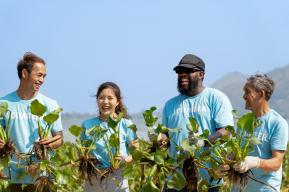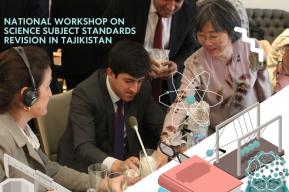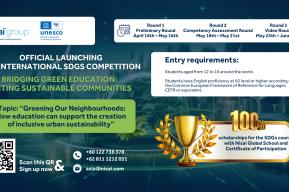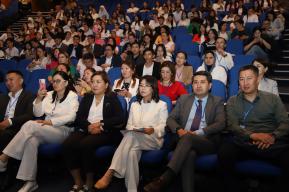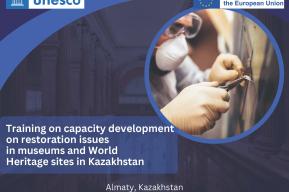Article
UNESCO’s toolkit can help accelerate the transition to global open science

The UNESCO Open Science Toolkit has been designed to support implementation of the UNESCO Recommendation on Open Science, the first international standard-setting instrument on open science.
This Recommendation was adopted by 193 countries in November 2021 at the 41st session of the UNESCO General Conference. The Recommendation provides an internationally agreed definition and a set of shared values and guiding principles for open science. It also identifies a set of actions conducive to a fair and equitable operationalization of open science for all at the individual, institutional, national, regional and international levels.
What do we mean by open science?
Open science combines various movements, practices and actions that aim to make all fields of scientific research accessible to everyone for the benefit not only of scientists but also society as a whole. The term open science refers to opening science up to readers who may not be able to afford to pay to access relevant scientific articles but also opening science across borders, between disciplines and beyond single communities.
By promoting science that is more accessible, inclusive and transparent, open science furthers the right of everyone to share in scientific advancement and its benefits, as stated in Article 27.1 of the Universal Declaration of Human Rights.
A first set of eight guides
Bringing this vision to reality will require coordinated efforts by all. UNESCO has developed the Open Science Toolkit, a collection of guides, policy briefs, factsheets and indices, in order to support this collective effort.
In December 2022, UNESCO launched its Open Science Toolkit during an Open Science Day co-hosted by the Africa Open Science Platform on the margins of the World Science Forum in Cape Town, South Africa. The forum was a particularly appropriate venue for the launch, given its theme of science for social justice.
The first set of eight guides were prepared in partnership with the UNESCO Working Groups on Open Science and with experts from partner organizations.
“Putting these guidelines together was a really collaborative piece of work for OASPA, first in writing them and then sharing with the open access publishing community for feedback and further development,” said Ms. Claire Redhead, Executive Director of the Open Access Scholarly Publishing Association. “It’s really exciting to see them now as part of UNESCO's toolkit and I hope they benefit open access publishers on their journey to implementing the Recommendation on Open Science in their publishing practices. We're grateful to UNESCO for hosting the guidelines and also to EIFL’s Iryna Kuchma for working with OASPA on these and making the guidelines for open access publishers a really valuable and globally relevant resource.”
The aim is to build a shared understanding and identify steps for strengthening equitable and sustainable open science systems, from the development of policies to the application of open infrastructures. The Toolkit pieces provide guidance for integrating the values and principles of open science into the processes and practices of science.
What is next?
“The transition to a global open science model has only just begun. Countries and scientists around the world will need support and guidance every step of the way,” observed Mr. Ezra Clark, Chief of Section, Science, Technology and Innovation Policy in UNESCO’s Natural Sciences sector.
In partnership with the members of the UNESCO Open Science Working Groups, the UNESCO Secretariat is preparing indices of open science resources that are available in 2023 to help in locating training materials, open knowledge resources on priority themes and policy instruments that are being used to create and support the transition to open science around the world.
The following will be available soon:
Open Indices
- UNESCO Open Science Capacity Building index
- UNESCO Index of Open Science Knowledge Sharing Platforms
- UNESCO Global Observatory of Science, Technology and Innovation Policy Instruments (GO-SPIN) – Open Science module
Guides
- Engaging society in open science
- Nurturing open-source hardware for open science
- Empowering journalism in open science
- Promoting open dialogues with other knowledge systems
Checklists
- Checklist for an institutional action plan for open science
Factsheets
- Towards equitable scholarly publishing
- Intellectual property rights and open science
- Overcoming challenges to the implementation of open science





